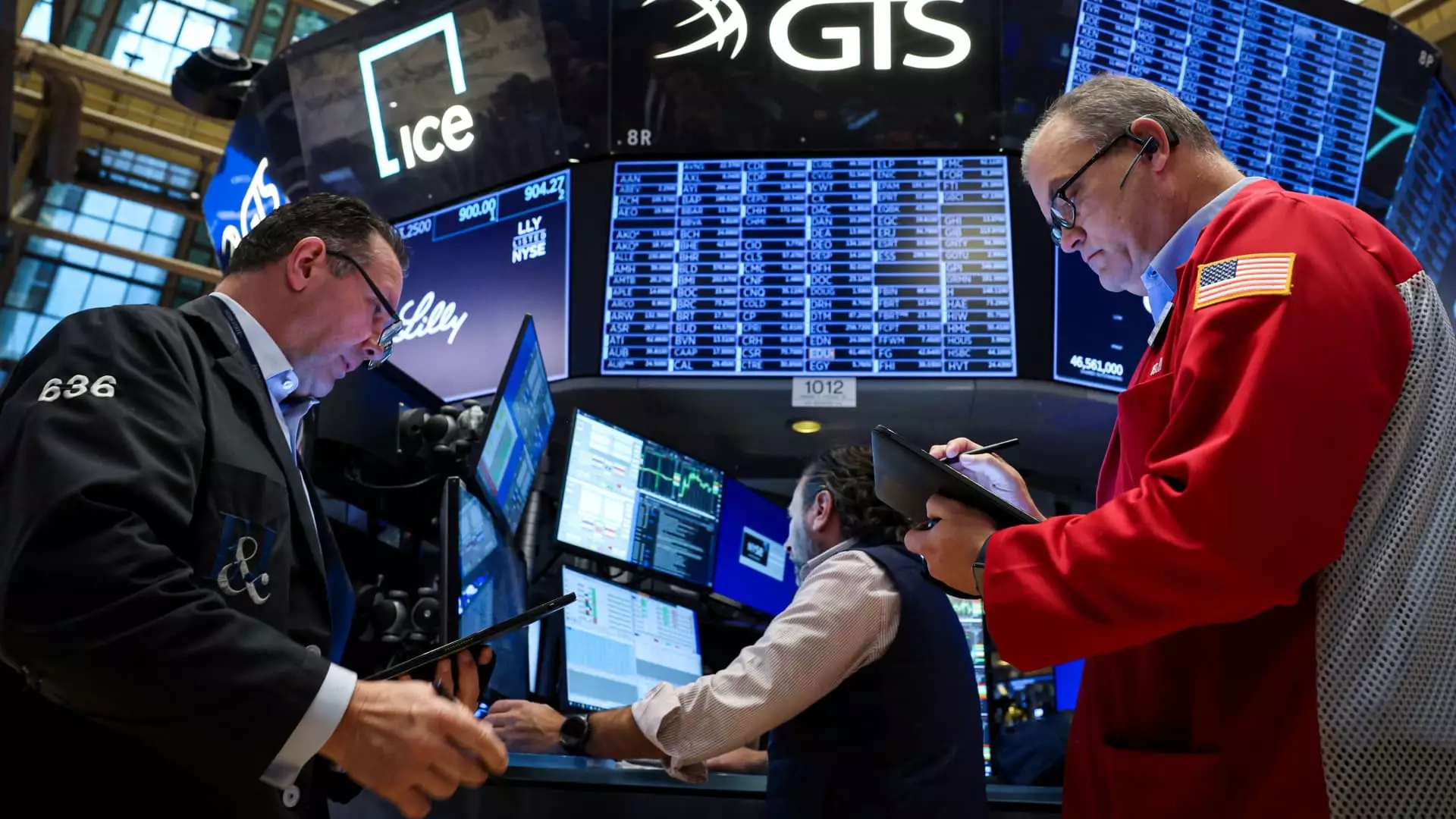As the U.S. presidential election fast approaches, market volatility has become a significant concern for investors. With numerous economic indicators fluctuating and a closely divided electorate, it’s understandable that participants in the financial markets are feeling anxious. Jordan Jackson, a global market strategist from J.P. Morgan Asset Management, recently highlighted this unease during a CNBC event, indicating that this uncertainty may lead to fluctuations in market performance. The Dow Jones Industrial Average recently experienced its most substantial drop since December, plummeting by over 400 points in a single day, while other major indices—the S&P 500 and Nasdaq—also saw notable declines.
Historically, stock markets tend to demonstrate volatility leading up to elections, often reflecting investors’ concerns regarding potential policy shifts that could arise from new leadership. Jackson observed that while markets may experience turbulence during this pre-election period, they often rebound strongly at the end of the calendar year. This historical precedent offers a glimmer of hope for investors, suggesting that patience may be rewarded. According to a recent survey conducted by life insurance company F&G, a striking 72% of American investors express apprehension as election day draws near, underscoring the broader sentiment of unease pervading financial circles.
In light of the current economic climate, Jackson recommends a steady approach to investing. He emphasizes the importance of maintaining one’s investment strategy during turbulent times, asserting that “markets are resilient.” His viewpoint revolves around the notion that despite a phase of unexpected short-term declines, the long-term outlook remains optimistic. Jackson points to a backdrop that may facilitate future market recovery, particularly if the Federal Reserve continues its trend of interest rate reductions initiated with a recent half-point cut.
In terms of economic health, recent data shows signs of improvement. September’s Consumer Price Index (CPI) inflation rate at 2.4% marks a significant decrease from the peak of 9.1% seen in June 2022. Jackson identifies this trend as a strong foundation for potential growth, alongside positive corporate fundamentals that bolster investor confidence. However, he advises caution against making impulsive sector-based investments in response to the ongoing political rhetoric associated with the elections.
While it may take time for consumers to adapt fully to price pressures, there are promising developments on the labor front, including rising wages and low unemployment rates. Jackson notes that consumer sentiment is likely to improve over the next year, leading to increased spending and overall economic growth. As confidence builds among consumers regarding their financial capabilities, the interplay between public sentiment and market performance will remain crucial as the nation navigates the uncertainties of this pivotal election period.
Although election-induced volatility can instigate short-term market fluctuations, empirical patterns suggest a potential recovery on the other side of election day, lending credence to the idea of remaining steadfast during uncertain times.

